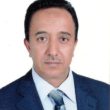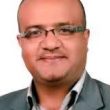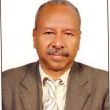On Sunday, 5/5/2024, a two-day workshop was held in partnership between the MRISC-Sana’a University and UNHCR at the Diplomatic Institute(MoFA) for the leaders of the Public Prosecution, whose active role is to deal with the issues and problems of refugees, asylum-seekers and displaced persons, and appropriate measures are to be taken in cooperation with the authorities, who rely on their active role in dealing with the issues and problems of refugees, asylum-seekers and displaced persons and taking appropriate measures and solutions in cooperation with the relevant authorities and in conformity with international laws and national legislation on them by virtue of their diverse professional competencies and thus they can positively influence the protection of the rights of refugees, asylum-seekers and displaced persons and the various problems and challenges they face, whether in the area of law or public services (health, education, housing, etc.)
The sessions of this important and qualitative workshop include various working papers that have led to a brainstorming approach to key aspects of international refugee protection based on the analysis of international refugee law and its complementarity with other sets of laws that ensure that the rights of persons who are forcibly displaced are respected and guaranteed. How to examine different stages of displacement, by identifying the reasons why people are forced to flee their habitual places of residence, and the protection risks addressed during this workshop, the search for durable solutions to improve the protection environment for all refugees, asylum-seekers and returning displaced persons with rights-based policies and practices consistent with international standards and how they are implemented, and the adoption of a comprehensive approach to the analysis of refugee issues such as human trafficking and smuggling, race, religion or country of origin, making this workshop rich in constructive interaction from everyone to meet legal foundations with field challenges.
The participants expressed their willingness to implement the working papers presented at this workshop and the discussions that took place on the ground in the present and future. Before the conclusion of the workshop, the questionnaire on the evaluation of the workshop was distributed.
Participants’ certificates were finally distribute.




